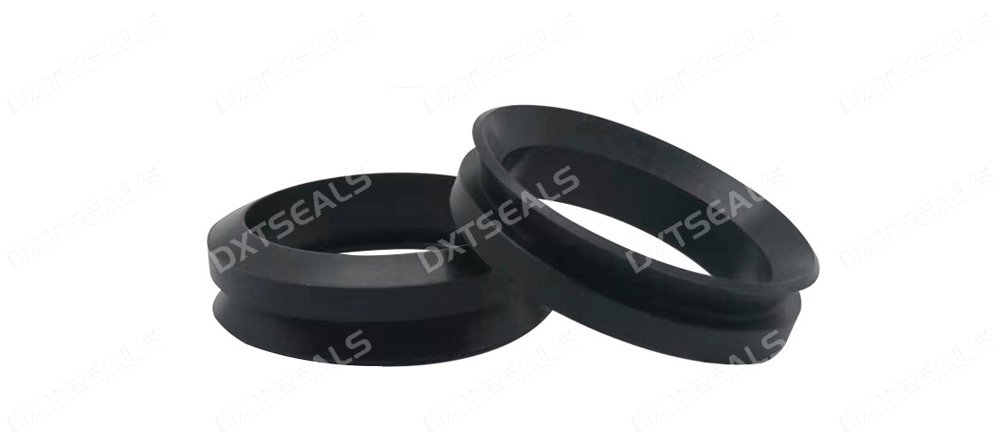
Plastic washers are versatile components widely used in various industries for their lightweight properties, resistance to corrosion, and insulating capabilities. In low-temperature environments, their performance becomes critical, as not all materials can withstand extreme cold without losing structural integrity. This article explores the behavior of plastic washers under low temperatures and highlights their suitable applications.
Challenges of Low-Temperature Environments
Operating in low-temperature environments can pose challenges to materials due to:
- Brittleness: Exposure to cold temperatures can make some materials brittle, leading to potential cracking or breakage.
- Thermal Contraction: Significant temperature drops may cause materials to contract, affecting fit and functionality.
- Impact Resistance: Reduced flexibility can result in diminished resistance to impact or sudden loads.
Understanding how plastic materials behave under these conditions is essential for selecting the right washer for your application.
Plastic Materials Suitable for Low-Temperature Applications
1. Polyethylene (PE)
- Temperature Range: -50°C to 70°C (-58°F to 158°F)
- Performance Features:
- Excellent cold resistance and flexibility.
- Ideal for applications requiring impact resistance at low temperatures.
- Applications: Cryogenic equipment, outdoor piping systems.
2. Polytetrafluoroethylene (PTFE)
- Temperature Range: -200°C to 260°C (-328°F to 500°F)
- Performance Features:
- Exceptional chemical resistance and stability in extreme cold.
- Low coefficient of friction, making it suitable for sliding or rotating components.
- Applications: Aerospace, chemical processing, and refrigeration systems.
3. Nylon (PA)
- Temperature Range: -40°C to 100°C (-40°F to 212°F)
- Performance Features:
- Moderate cold resistance with high strength and wear resistance.
- Can absorb moisture, which may affect performance in some environments.
- Applications: Automotive components, machinery spacers.
4. Polycarbonate (PC)
- Temperature Range: -40°C to 120°C (-40°F to 248°F)
- Performance Features:
- High impact strength even at low temperatures.
- Transparent material with good electrical insulation properties.
- Applications: Electrical enclosures, safety equipment.
5. Polypropylene (PP)
- Temperature Range: -20°C to 100°C (-4°F to 212°F)
- Performance Features:
- Lightweight and resistant to moisture and chemicals.
- Limited flexibility in extremely low temperatures.
- Applications: Food-grade equipment, laboratory instruments.
Key Benefits of Plastic Washers in Low-Temperature Conditions
- Corrosion Resistance: Unlike metal washers, plastic washers do not corrode or degrade in moisture or chemical-rich environments.
- Lightweight: Their low weight reduces the overall load on the system.
- Electrical Insulation: Many plastics provide excellent insulation properties, ideal for electrical and electronic applications.
- Cost-Effectiveness: Plastic washers are often more affordable than their metal counterparts while offering comparable performance in specific environments.
Applications of Plastic Washers in Low-Temperature Environments
1. Cryogenic Equipment
Plastic washers, especially those made of PTFE or polyethylene, are widely used in cryogenic systems where temperatures can drop to extreme levels. These washers maintain their integrity and prevent leaks in systems like liquid nitrogen tanks and cryogenic pumps.
2. Aerospace Industry
In aerospace applications, plastic washers are used to reduce weight while providing thermal insulation. PTFE washers are particularly valuable for components exposed to the vacuum and cold temperatures of space.
3. Refrigeration Systems
Plastic washers are essential in refrigeration systems, ensuring seals and insulation in compressors, valves, and piping. Materials like nylon and polypropylene are common in these applications.
4. Outdoor Infrastructure
Plastic washers are used in outdoor structures, including pipelines, signage, and electrical systems, where they must withstand cold climates without cracking or degrading.
5. Automotive Industry
Nylon and polyethylene washers are used in vehicles for insulating and spacing components. They perform reliably in cold climates, ensuring long-term functionality.
Tips for Selecting Plastic Washers for Low-Temperature Applications
- Assess Temperature Range: Choose a material with a temperature tolerance that exceeds your operating conditions.
- Consider Mechanical Requirements: Evaluate the load-bearing, impact resistance, and flexibility needed for your application.
- Account for Environmental Factors: Consider exposure to chemicals, moisture, or UV light, which may influence material performance.
- Consult Technical Data Sheets: Review material specifications from manufacturers to confirm compatibility with your application.
- Test in Real-World Conditions: Conduct performance tests to ensure the washer meets your requirements in its intended environment.
Conclusion
Plastic washers are indispensable in low-temperature applications, offering durability, lightweight performance, and corrosion resistance. By understanding the properties of different plastic materials and their behavior under cold conditions, you can select the ideal washer for your specific needs.
For industries ranging from aerospace to refrigeration, plastic washers continue to provide reliable solutions, ensuring efficiency and safety in demanding environments. Partnering with a trusted supplier can further ensure the quality and performance of these essential components.
